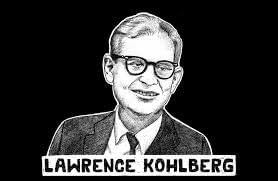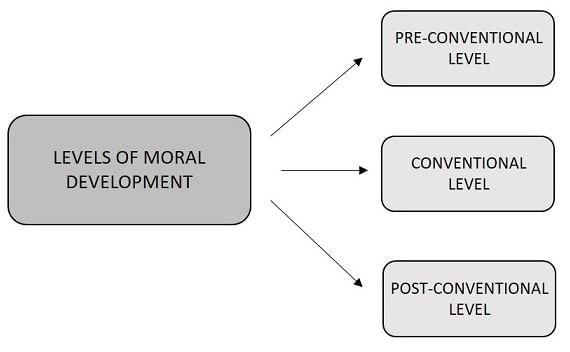Theory of Descriptive Ethics by Lawrence Kohlberg | UPSC Mains: Ethics, Integrity & Aptitude PDF Download
Philosophy
- Philosophy is the systematic exploration of thoughts and an art of living. It seeks to understand the meaning and value of life and aims to comprehend ultimate Reality. As a study of the foundational principles behind all knowledge, philosophy strives to uncover ultimate truth. It is a rational effort to interpret and unify all experiences, offering a logical perspective of the entire universe.
- The term "philosophy" comes from the Greek word "philosophic," meaning the pursuit of wisdom. Philosophy represents a love for knowledge, and a philosopher is one who seeks it.
- In India, philosophy is known as "Darshan," which translates to "Vision" and also refers to the tools or methods of gaining this vision. Indian philosophy emerges from the desire for direct realization of ultimate Reality. Its roots can be traced to the Upanishads, the sacred texts of Hinduism.

Modern Moral Philosophy
- In the 20th century, moral theories have grown more intricate, extending beyond the simple determination of right and wrong to explore various aspects of moral status. For example, W.D. Ross contends that moral theories cannot definitively label actions as right or wrong but can only assess whether they generally align with certain moral duties, such as beneficence, fidelity, or justice.
- Some philosophers have questioned whether these duties or principles can be clearly articulated at a theoretical level, leading some to shift from normative ethics towards descriptive morality and meta-ethics. Meanwhile, others defend moral theories, arguing that they can still provide valuable moral insights even if they are not flawless.
- Contemporary moral philosophy increasingly emphasizes 'claims-based' or 'rights-based ethics,' which center on principles of human rights and individual claims. Rights-based theories assert that individuals are entitled to specific freedoms and rights, such as those outlined in liberal theories focusing on freedoms like speech, association, and religion.
- Modern theories also address claims to human, civil, political, social, and economic rights. Examples include the Universal Declaration of Human Rights by the United Nations and welfareism, which advocates for a welfare state to ensure security, healthcare, education, employment, and housing.
Development of Moral Reasoning/ Consciousness: Lawrence Kohlberg
- The theory of Development of Moral Reasoning or Consciousness, introduced by renowned psychologist Lawrence Kohlberg, is a key concept in descriptive ethics. Kohlberg began his research on moral development in the 1950s, presenting hypothetical dilemmas centered around the concept of justice to 75 boys aged 10, 13, and 16.
- He continued to study these individuals periodically over 30 years. Based on these interviews, Kohlberg concluded that people's approach to moral issues reflects their cognitive development. He also found that individuals form moral judgments independently, rather than simply adopting the standards of parents, teachers, or peers.
Based on the thought processes evident in responses to his dilemmas, Kohlberg (1969) identified three levels of moral reasoning:

Level 1: Preconventional Morality
This is the most basic stage of moral reasoning, where the locus of control lies outside the individual. People are guided by external controls, following rules to avoid punishment or gain rewards, often acting out of self-interest. This approach is entirely ego-centric. For example, a child refrains from copying to avoid being punished.
Level 2: Conventional Morality (Morality of Role Conformity)
As individuals mature within a complex human society, they begin to internalize the standards set by authority figures. At this stage, the approval of society becomes the locus of control for moral behavior. People focus on being "good," pleasing others, and maintaining social order. For instance, a secondary school student avoids copying because they know their teacher and peers disapprove of such behavior.
Level 3: Postconventional Morality (Morality of Autonomous Moral Principles)
When faced with complex moral dilemmas, individuals recognize conflicts between moral standards and make judgments based on principles of justice, fairness, and what is right. At this level, the locus of control is internal. For example, a young person refrains from copying in competitive exams because they believe it undermines the purpose of the test and is inherently wrong.
|
78 videos|65 docs
|
FAQs on Theory of Descriptive Ethics by Lawrence Kohlberg - UPSC Mains: Ethics, Integrity & Aptitude
| 1. What is Lawrence Kohlberg's theory of moral development? |  |
| 2. How does Kohlberg's theory relate to modern moral philosophy? |  |
| 3. What are the key stages in Kohlberg's moral development theory? |  |
| 4. Can Kohlberg's theory be applied to real-life ethical dilemmas? |  |
| 5. What criticisms exist regarding Kohlberg's moral development theory? |  |

|
Explore Courses for UPSC exam
|

|
















